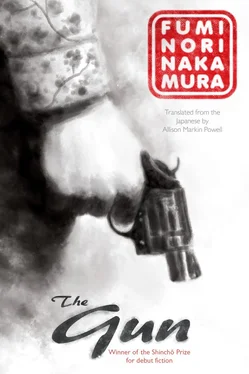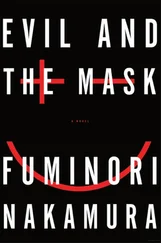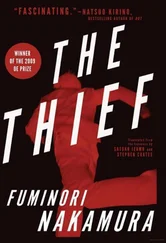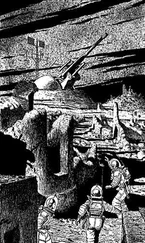In my lecture, a tall guy in a suit was going on and on about Islamic culture, and then about its history. He was very excited — more intense about it than usual. Come to think of it, I felt like I might have seen him on television once before. But I couldn’t be sure whether it had been him, after all, and it had nothing to do with me anyway.
When I left the classroom, Keisuke was waiting for me outside. He was talking about girls and clothes and watches. He said that lately he had seen me with a girl a lot, and asked if she was my girlfriend. I figured he must have been talking about Yuko Yoshikawa. I told him no, but that I was working on it.
“So, I guess you haven’t done it yet. But she seems cute. And quite a body too. You’ve got an eye for them, don’t you? You haven’t fallen for her, have you?”
“What do you mean?”
“I just wonder if you’re in love with her or something. Cause if you are, I’d have to laugh — how great would it be if you had fallen for some girl? Come on, let’s go drinking. You can tell me about it.”
“No, you’ve got the wrong idea. Well, I mean, maybe that’s it.”
Keisuke seemed to be in a good mood, so I decided to play along with him. He laughed when I pretended to be self-conscious. He tried doggedly to get me to agree to go out drinking with him, but I refused. Today I had been thinking that I would go and scout out the mountain where I had decided to fire the gun. Pragmatically, it wasn’t necessary for me to do so, but there were various steps I wanted to put into place before actually shooting it, for the purpose of ensuring my own calm and composure. I had decided to investigate the area around the mountain, to seek out the optimal spot where I should fire it. I thought I would likely derive some pleasure from these preparations.
My phone rang, the call was from my parents’ house. A little surprised, I told Keisuke that I had to talk to them. I stood there and answered the phone, then sat down on a nearby bench. Keisuke stayed a short distance away from me for some reason, fumbling to light a cigarette. It was my mother, and again I wondered why she hadn’t called the landline in my apartment. If she had something to talk to me about, it seemed like calling there and leaving a message on the machine would be easier. First she asked about my health, and I reassured her that there was nothing to worry about. My mother sounded a little strange — I had thought the same thing when she called the other day. At the time, it had occurred to me that parents and children pick up on these things from each other through the subtlest mannerism or impression. I figured something must have happened at home.
“Is something the matter?” I said. “You don’t have to say if you don’t want to, but if it’s better for me to know about it, then please just tell me. Okay? What is it — it’s all right, just go ahead and tell me.”
My mother hesitated before saying, “Your father is in critical condition.” This made no sense to me, so I asked her to repeat what she had said. The last time I had been at home, my father had been in good health, so I couldn’t imagine him sick or in the hospital. We had drunk together, and I had listened to him talk at length about his beloved golf. I asked my mother, hadn’t he been fine since then? She fell silent for a moment, then apologized for not knowing how to put it. The person who was in critical condition, she said, was the father to whom I was related by blood.
“Of course, your father and I think of you as our own son. That’s only natural — we’re parent and child — but, you know, I just couldn’t decide what to do, your father and I talked it over and we felt that it was better to tell you, okay, you know, you probably held a grudge against your father — no, not your father who’s here, I meant the other one — and I thought it would be best for you — as far as we were concerned — to have forgotten about all that, but then the orphanage contacted us, to say that he was, you know, about to die, and we just couldn’t decide what to do, but in the end, we thought we should tell you everything, and then leave it up to you to decide whether or not to go visit him. It must be fifteen years since you’ve seen him, I bet you wouldn’t even recognize him — that’s right, you were about six when you became our son. Okay, I’m sorry, you must be surprised, uh, how, you know, I’m sorry, I gave you quite a shock.”
My mother rambled on, seeming to break down in tears midway. I had no idea why she was crying, but her voice choked up and she sounded like she was spilling it all out to me in one breath. I was a little surprised by the suddenness of it, but I had imagined something much worse, so I was sort of relieved. Nevertheless, I grasped that this was a grave scene. And I wondered what would be the best way to respond, as far as my parents were concerned. It was hard to say, but I thought I should probably say that I would go see him, without seeming to worry about it. If I were to state awkwardly that I didn’t want to see him, that would seem like I actually did care about it. It might appear as if in my heart I was still holding on to the idea of my real father. But the thought of gleefully going to see him didn’t seem right. It was a particularly tricky path between the two. Yet I was aware of an external pressure — though to do what exactly, I wasn’t sure.
“Back then, you know, when you came into our family, the people at the orphanage told us that usually in these cases — especially when the actual parent is alive, right — the child’s mental condition can be unsettled, and it can take a while for the child to think of you as his parents, so we should take a long view and give you time. Often the child might stop eating meals, or try to run away — even if their birth parent was terrible, they might cry that they want to go back to them. But you — from the beginning, you called us Mother and Father, didn’t you — you smiled a lot, you didn’t brood on your own, you never cried, we were so happy, you know, we were so glad that you accepted us, but now when I think about it, it seems as if you were just looking out for us — you were such a thoughtful boy, you know, always so kind, weren’t you, unusually so for a child — I think you were sensitive to a lot of things.”
She broke down midway, and handed the phone over to my father. The first thing he asked me was if I was surprised, and my response was, “Yeah, I guess so.” Then he said, “Take your time, give it some thought about whether or not to go see him.” Curious as to why he was home at this time of day, I asked him. He was getting close to retirement age, he said, and lately he’d been getting home early.
“If you don’t want to go, that’s fine, I mean, well, this is all of a sudden, isn’t it. Sorry — well, take your time and think about it.”
“No, well, I’ll go. He’s about to die and he wants to see me, right? It doesn’t really matter to me either way, but I’ll go — honestly, it’s kind of annoying. I’m afraid if I don’t go, he’ll resent me for it. Oh, right, sorry — things are a little tight this month, so. . I wonder if you could send me ten thousand yen or so. I’m really sorry to ask. When I go out — ah, no, I’ve got a lot going on, I spent all my money buying a new dictionary.”
“You just said you’ve been going out, huh?” my father said with a little laugh.
“Not at all, that’s not what I meant. Really, I’m telling you — but, sorry though — I really need you to send it to me.”
“I understand, what else can I do? Make sure you’re studying. Oh, and if you do go to see him, I think Mr. Yamane will go with you. I think you’ll likely hear from him too.”
“Got it. Oh, listen, give Mom a hard time because it seemed like she was crying. Tell her she must be getting sentimental in her old age, okay? Ah, class is about to start,” I said and hung up.
Читать дальше












